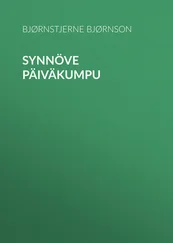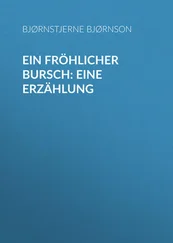Bjørnstjerne Bjørnson - Arne; Early Tales and Sketches
Здесь есть возможность читать онлайн «Bjørnstjerne Bjørnson - Arne; Early Tales and Sketches» — ознакомительный отрывок электронной книги совершенно бесплатно, а после прочтения отрывка купить полную версию. В некоторых случаях можно слушать аудио, скачать через торрент в формате fb2 и присутствует краткое содержание. Жанр: foreign_antique, foreign_prose, на английском языке. Описание произведения, (предисловие) а так же отзывы посетителей доступны на портале библиотеки ЛибКат.
- Название:Arne; Early Tales and Sketches
- Автор:
- Жанр:
- Год:неизвестен
- ISBN:нет данных
- Рейтинг книги:4 / 5. Голосов: 1
-
Избранное:Добавить в избранное
- Отзывы:
-
Ваша оценка:
- 80
- 1
- 2
- 3
- 4
- 5
Arne; Early Tales and Sketches: краткое содержание, описание и аннотация
Предлагаем к чтению аннотацию, описание, краткое содержание или предисловие (зависит от того, что написал сам автор книги «Arne; Early Tales and Sketches»). Если вы не нашли необходимую информацию о книге — напишите в комментариях, мы постараемся отыскать её.
Arne; Early Tales and Sketches — читать онлайн ознакомительный отрывок
Ниже представлен текст книги, разбитый по страницам. Система сохранения места последней прочитанной страницы, позволяет с удобством читать онлайн бесплатно книгу «Arne; Early Tales and Sketches», без необходимости каждый раз заново искать на чём Вы остановились. Поставьте закладку, и сможете в любой момент перейти на страницу, на которой закончили чтение.
Интервал:
Закладка:
"My dear, I cannot," said she, softly.
"Mother, sing something for me," begged the boy, "or I believe I will never be able to look at you again."
She stroked his hair, but was silent.
"Mother, sing, sing, I say! Sing," he begged, "or I will go so far away that I will never come home any more."
And while he, now fourteen in his fifteenth year as he was, lay there with his head in his mother's lap, she began to sing over him: —
"Father, stretch forth Thy mighty hand,
Thy Holy Spirit send yonder:
Bless Thou the child on the lonely strand,
Nor in its sports let it wander.
Slipp'ry the way, the water deep, —
Lord, in Thy arm but the darling keep,
Then through Thy mercy 't will never
Drown, but with Thee live forever.
"Missing her child, in disquiet sore,
Much for its safety fearing,
Often the mother calls from her door,
Never an answer hearing, —
Then comes the thought: where'er it be,
Blessed Lord, it is near to Thee;
Jesus will guide his brother
Home to the anxious mother." 7 7 Auber Forestier's translation.
She sang several verses. Arne lay still: there descended upon him a blessed peace, and under its influence he felt a refreshing weariness. The last thing he distinctly heard was about Jesus: it bore him into the midst of a great light, and there it seemed as though twelve or thirteen were singing; but the mother's voice rose above them all. A lovelier voice he had never heard; he prayed that he might sing thus. It seemed to him that if he were to sing right softly he might do so; and now he sang softly, tried again softly, and still more softly, and then, rejoiced at the bliss that seemed almost dawning for him, he joined in with full voice, and the spell was broken. He awakened, looked about him, listened, but heard nothing, save the everlasting, mighty roar of the force, and the little creek that flowed past the barn, with its low and incessant murmuring. The mother was gone, – she had laid under his head the half-finished shirt and her jacket.
CHAPTER IV
When the time came to take the herds up into the woods, Arne wanted to tend them. His father objected; the boy had never tended cattle, and he was now in his fifteenth year. But he was so urgent that it was finally arranged as he wished; and the entire spring, summer, and autumn he was in the woods by himself the livelong day, only going home to sleep.
He took his books up there with him. He read and carved letters in the bark of the trees; he went about thinking, longing, and singing. When he came home in the evening his father was often drunk, and beat the mother, cursed her and the parish, and talked about how he might once have journeyed far away. Then the longing for travel entered the boy's mind too. There was no comfort at home, and the books opened other worlds to him; sometimes it seemed as though the air, too, wafted him far away over the lofty mountains.
So it happened about midsummer that he met Kristian, the captain's eldest son, who came with the servant boy to the woods after the horses, in order to get a ride home. He was a few years older than Arne, light-hearted and gay, unstable in all his thoughts, but nevertheless firm in his resolves. He spoke rapidly and in broken sentences, and usually about two things at once; rode horseback without a saddle, shot birds on the wing, went fly-fishing, and seemed to Arne the goal of his aspirations. He also had his head full of travel, and told Arne about foreign lands until everything about them was radiant. He discovered Arne's fondness for reading, and now carried up to him those books he had read himself. After Arne had finished reading these, Kristian brought him new ones; he sat there himself on Sundays, and taught Arne how to find his way in the geography and the map; and all summer and autumn Arne read until he grew pale and thin.
In the winter he was allowed to read at home; partly because he was to be confirmed the next year, partly because he always knew how to manage his father. He began to go to school; but there he took most comfort when he closed his eyes and fancied himself over his books at home; besides, there were no longer any companions for him among the peasant boys.
His father's ill-treatment of the mother increased with years, as did also his fondness for drink and his bodily suffering. And when Arne, notwithstanding this, had to sit and amuse him, in order to furnish the mother with an hour's peace, and then often talk of things he now, in his heart, despised, he felt growing within him a hatred for his father. This he hid far down in his heart, as he did his love for his mother. When he was with Kristian, their talk ran on great journeys and books; even to him he said nothing about how things were at home. But many times after these wide-ranging talks, when he was walking home alone, wondering what might now meet him there, he wept and prayed to God, in the starry heavens, to grant that he might soon be allowed to go away.
In the summer he and Kristian were confirmed. Directly afterward, the latter carried out his plan. His father had to let him go from home and become a sailor. He presented Arne with his books, promised to write often to him, – and went away.
Now Arne was alone.
About this time he was again filled with a desire to write songs. He no longer patched up old ones; he made new ones, and wove into them all that grieved him most.
But his heart grew too heavy, and his sorrow broke forth in his songs. He now lay through long, sleepless nights, brooding, until he felt sure that he could bear this no longer, but must journey far away, seek Kristian, and not say a word about it to any one. He thought of his mother, and what would become of her, – and he could scarcely look her in the face.
He sat up late one evening reading. When his heart became too gloomy, he took refuge in his books, and did not perceive that they increased the venom. His father was at a wedding, but was expected home that evening; his mother was tired, and dreaded her husband's return; had therefore gone to bed. Arne started up at the sound of a heavy fall in the passage and the rattling of something hard, which struck against the door. It was his father who had come home.
Arne opened the door and looked at him.
"Is that you, my clever boy? Come and help your father up!"
He was raised up and helped in toward the bench. Arne took up the fiddle-case, carried it in, and closed the door.
"Yes, look at me, you clever boy. I am not handsome now; this is no longer tailor Nils. This I say – to you, that you – never shall drink brandy; it is – the world and the flesh and the devil – He resisteth the proud but giveth grace unto the humble. – Ah, woe, woe is me! – How far it has gone with me!"
He sat still a while, then he sang, weeping, —
"Merciful Lord, I come to Thee;
Help, if there can be help for me;
Though by the mire of sin defiled,
I'm still thine own dear ransomed child." 8 8 Translated by Augusta Plesner and S. Rugeley-Powers.
"Lord, I am not worthy that Thou shouldest come under my roof; but speak the word only" – He flung himself down, hid his face in his hands, and sobbed convulsively. Long he lay thus, and then he repeated word for word from the Bible, as he had learned it probably more than twenty years before: "Then she came and worshiped Him, saying, Lord, help me! But he answered and said, It is not meet to take the children's bread, and to cast it to dogs. And she said, Truth, Lord, yet the dogs eat of the crumbs which fall from their master's table!"
He was silent now, and dissolved in a flood of tears.
The mother had awakened long since, but had not dared raise her eyes, now that her husband was weeping like one who is saved; she leaned on her elbows and looked up.
Читать дальшеИнтервал:
Закладка:
Похожие книги на «Arne; Early Tales and Sketches»
Представляем Вашему вниманию похожие книги на «Arne; Early Tales and Sketches» списком для выбора. Мы отобрали схожую по названию и смыслу литературу в надежде предоставить читателям больше вариантов отыскать новые, интересные, ещё непрочитанные произведения.
Обсуждение, отзывы о книге «Arne; Early Tales and Sketches» и просто собственные мнения читателей. Оставьте ваши комментарии, напишите, что Вы думаете о произведении, его смысле или главных героях. Укажите что конкретно понравилось, а что нет, и почему Вы так считаете.












